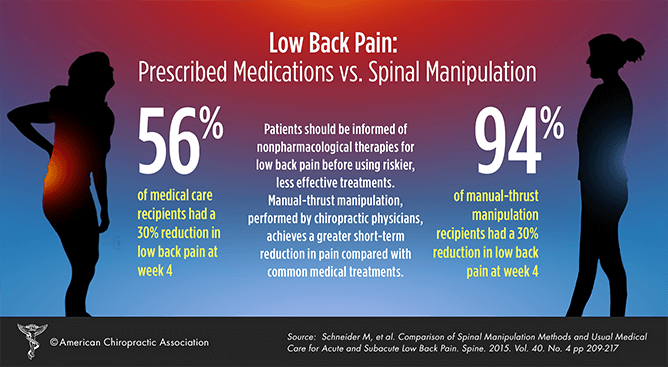Nutrition'S Influence On Pain In The Back Relief: Dietary Choices To Embrace And Those To Stay Away From
Nutrition'S Influence On Pain In The Back Relief: Dietary Choices To Embrace And Those To Stay Away From
Blog Article
Created By-Locklear Lockhart
When it pertains to handling your pain in the back, the food choices you make can considerably impact just how you really feel every day. Envision being able to alleviate your pain simply by adjusting what you consume. By understanding the role of nutrition in back pain management and understanding which foods to include or steer clear of, you can take proactive actions towards a healthier and much more comfortable lifestyle. The link in between nourishment and back wellness is a lot more extensive than you may realize-- let's explore just how particular foods can either relieve or worsen your back pain.
Relevance of Nutrition in Neck And Back Pain
Nutrition plays a vital role in managing neck and back pain. Your diet can dramatically affect inflammation degrees and general pain levels in your back. Taking in a balanced diet regimen rich in nutrients like vitamins D and K, calcium, magnesium, and omega-3 fatty acids can help reduce inflammation and reinforce bones, which are necessary for back wellness.
In addition, preserving a healthy and balanced weight through appropriate nutrition can alleviate tension on your spine, minimizing the threat of back pain.
In addition, certain nutrients like antioxidants found in vegetables and fruits can aid combat oxidative anxiety and promote healing in the body, including the back muscles and back.
On the other hand, eating too much amounts of refined foods, sugary beverages, and harmful fats can add to swelling and weight gain, exacerbating neck and back pain.
Foods to Eat for Back Health
To sustain a healthy and balanced back, including nutrient-rich foods right into your day-to-day dishes is key. Including foods high in anti-oxidants like berries, spinach, and kale can help reduce swelling in your back, relieving discomfort and discomfort. Omega-3 fatty acids found in fatty fish such as salmon and mackerel have anti-inflammatory residential properties that can profit your back health and wellness.
Additionally, consuming nuts and seeds like almonds, walnuts, and chia seeds offers important nutrients like magnesium and vitamin E, which support muscle mass function and minimize oxidative stress. Including lean healthy proteins such as poultry, turkey, and tofu can assist in muscular tissue fixing and upkeep, advertising a solid back.
Don't forget to consist of dairy products or fortified plant-based options for calcium to sustain bone health. Lastly, massage in washington heights with a lot of water to keep your spinal discs hydrated and functioning efficiently. By consisting of https://reliefchiropracticclinic17394.getblogs.net/63730731/understanding-the-holistic-method-in-chiropractic-treatment -dense foods in your diet, you can nourish your back and support overall back health.
Foods to Stay Clear Of for Pain In The Back
Select avoiding processed foods high in sugarcoated and trans fats when looking for relief from back pain. These types of foods can contribute to swelling in the body, which may exacerbate pain in the back. Say no to sugary snacks sweet, pastries, and sweet drinks, in addition to convenience food items like hamburgers, fries, and fried hen that are often loaded with trans fats.
Additionally, stay away from foods having high degrees of polished carbs, such as white bread, pasta, and breads, as they can spike blood sugar level levels and potentially worsen inflammation in the body.
It's likewise a good idea to restrict your intake of foods high in hydrogenated fats, like red meat and full-fat dairy products, as they can add to inflammation. Processed https://www.healthline.com/health/back-pain/sciatic-stretches like delicatessens meats, chips, and packaged snacks are usually high in hydrogenated fats and must be eaten in small amounts.
Final thought
Finally, taking note of your diet plan and making smart food selections can have a substantial effect on managing back pain. By incorporating nutrient-rich foods like berries, fatty fish, nuts, and lean healthy proteins, and staying clear of refined and sweet items, you can help in reducing inflammation and support overall back wellness. Remember, what you eat plays an essential role in just how you feel, so make certain to prioritize your nourishment for a healthier back.
